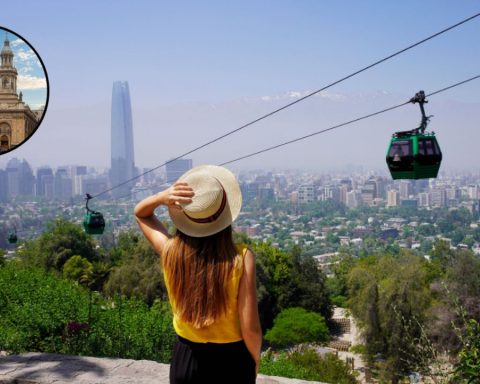The Undersecretary of the Interior, Manuel Monsalve, assured that the Government’s objective regarding the conflict situation in the south of the country “is a political solution” and that it excludes the possibility of the use of weapons.
This week the Minister of the Interior, Izkia Siches, confirmed that they will ask President Gabriel Boric to extend the State of Exception, which governs the provinces of Biobío and Arauco, the Biobío Region, and the entire Araucanía Region. “The figures again show that this complementary measure is useful to prevent acts of violence, which globally have been reduced by more than 33%,” said the Secretary of State.
You may also like:
Despite the reduction in acts of violence, the Executive is working on a solution, especially when the State of Exception measure was eliminated from the proposal for a new Constitution that will be voted on on September 4.
“Obviously our goal is a political solution and this excludes the possibility of using weapons or legitimizing their use as a way out or as a response to the conflict that La Araucanía is experiencing,” said Undersecretary Monsalve, in conversation with The Mercury.
“I am very much in favor of a political solution and of the recognition of the rights of the Mapuche people, but I am not in favor of the use of violence. The political solution per se involves (resistance groups) laying down their weapons,” he said.
Asked if he regrets that the State of Exception has been eliminated from the Magna Carta proposal, Undersecretary Monsalve stated that “the State is going to have a different tool than what we know as a state of exception: the critical infrastructure project, which It is more likely that this beginning week it will be voted on in Congress”.
“I believe that this tool will allow, in situations of risk or threat to facilities such as the routes through which Chileans travel, such as services provided to cities, basic services or infrastructure that is considered strategic for the country, the governments are going to have this tool to request the concurrence of the Armed Forces in the tasks of protecting that infrastructure,” he added.
The head of the Undersecretary of the Interior also recalled that several of the security decisions promoted by the government of former President Sebastián Piñera, and which he opposed in the Chamber of Deputies, “took place within the framework of a political crisis that the country that he tried to contain from the police point of view”. In addition, he said, it occurred in a context of human rights violations, and hundreds of young people who were irreparably injured.
In Manuel Monsalve’s opinion, the criminal situation in the country “is not a discussion that takes place in the context of a country that is going through a normal period.”
“I believe that the scenario has changed completely. We are not in a situation where today there are confrontations in the streets of our country,” he concluded.
















